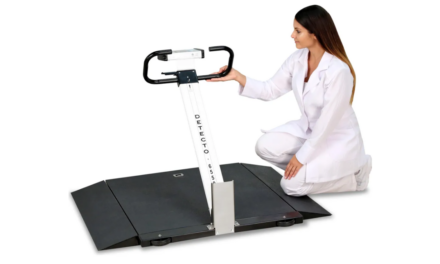From a global pandemic to labor shortages, the healthcare industry is no stranger to supply chain disruptions.
In today’s hospitals, clouds of frustrations with vendor management, contract compliance, changing industry and local regulations, and long lead times loom around the halls of every purchasing department. To reduce risks, fuel innovation and gain confidence in your purchasing and sourcing capabilities, your healthcare supply chain strategy needs resiliency.
Learn how to achieve supply chain resilience and meet your organization’s goals.
How to Achieve Supply Chain Resilience: A Supply Chain Resiliency Guide
What is Supply Chain Resilience and Supply Chain Redundancy?
Organizations with supply chain resiliency can bounce back after unexpected events, maintaining their operational continuity.
Although two years have passed since the pandemic, healthcare supply chain is still stretched thin and experiencing inconsistencies. To achieve supply chain resilience, engage multiple sourcing strategies and supplier relationships for long term viability.
Supply chain redundancy encourages diversification in healthcare supply chain management with backup or alternative suppliers, holding extra safety stock inventory and having low capacity utilization.
Putting all your product eggs in a single source supplier basket causes inefficiencies and can be a healthcare supply chain management pain point. Diversifying hospital supplier networks through redundancy is key in building supply chain resilience.
Request an account to access Healthcare’s #1 Supply Chain and over 1M+ on-contract products.
Top 4 Benefits of Supply Chain Resilience
Supply chain resilience strategies can transform your hospital supply chain management, providing benefits across your organization.
Enhanced regulatory compliance is one benefit supply chain resilience can bring. A behavioral health facility recently experienced the benefits of supply chain resilience when an unexpected Joint Commission Survey revealed that their facility didn’t have the necessary medical crash carts for hospital accreditation requirements. If the facility couldn’t show proof of ordering the required carts within 24 hours, they were set to fail the inspection.
In the organization’s diversified supplier network, they sought out Direct Supply for fast PO placement and product expertise. As their supply chain partner, Direct Supply was able to help them secure a purchase order ASAP, and the facility passed their Joint Commission Survey accreditation. Discover more examples of how Direct Supply helps navigate supply chain challenges to achieve resilience.
By building supply chain resilience, your hospital supply chain strategic plan can meet your organization’s goals with these top four benefits:
1. Competitive Advantage
Building supply chain resilience can lead to competitive advantages for your healthcare organization. A robust supply chain strategy in hospitals learns from previous disruptions and paves the path for the future with enhanced forecasting and sourcing capabilities. Resilience can fuel agility when purchasing to ensure your hospital has the capital equipment it needs to improve patient care and outcomes.
2. Increased Acquisition
When purchasing for healthcare supply chains, many hospitals lean on their GPO contracts. However, many items can be hard-to-find and difficult to get delivered fast. For capital equipment purchases and non-contracted products, your healthcare purchasing team may have to solicit from multiple vendors. Supply chain resiliency allows for the capability to have a diversified network of suppliers to enhance ordering acquisition.
3. More Efficient Operations and Labor Productivity
A benefit of supply chain resilience is reduced staff time on ordering and managing product distribution. A diversified supply chain and dependable supplier relationships saves time and can reduce labor costs for your hospital.
4. Risk Reduction
A resilient supply chain in healthcare prepares for both expected and unexpected risks. Risks may include distribution delays and lead times, rising costs, or product availability when procuring capital for projects, as well as compliance in equipment planning for hospital accreditation.
Request an account to access Healthcare’s #1 Supply Chain and over 1M+ on-contract products.
Hospital Supply Chain Management Best Practices
As you craft your hospital supply chain strategic plan with resiliency in mind, consider looking for suppliers and capex procurement partners to diversify with. Fuel your hospital’s supply and demand with these resiliency best practices:
- Product Breadth: Ensure you have access to a breadth of products from multiple manufacturers with virtual manufacturing and strategic vendor management services.
- Streamlined Ordering: Look for streamlined product and capital equipment ordering with consolidated purchase orders to minimize tracking and delivery distribution management.
- Develop a Supply Chain Partnership: Ensure your supply chain partner offers product consultant support to help you find the right products for your needs.
- Supply Chain Agility: Engage with suppliers that have the ability to act fast and overcome challenges with shipping costs and minimum ordering quantities.
By infusing these best practices into your hospital supply chain strategic plan, you can gain confidence in your organization’s healthcare purchasing and reap the benefits of building a resilient supply chain.
Build Supply Chain Resilience with Direct Supply
Get in touch with an experienced healthcare vendor to bring resiliency to your healthcare supply chain strategy.
Direct Supply offers the most robust and reliable supply chain serving healthcare. Thanks to nearly 40 years of developing tight industry relationships and healthcare expertise, our massive selection is backed by supply chain resiliency you can trust.
Request an account or call 844-545-7428 for personalized support.





